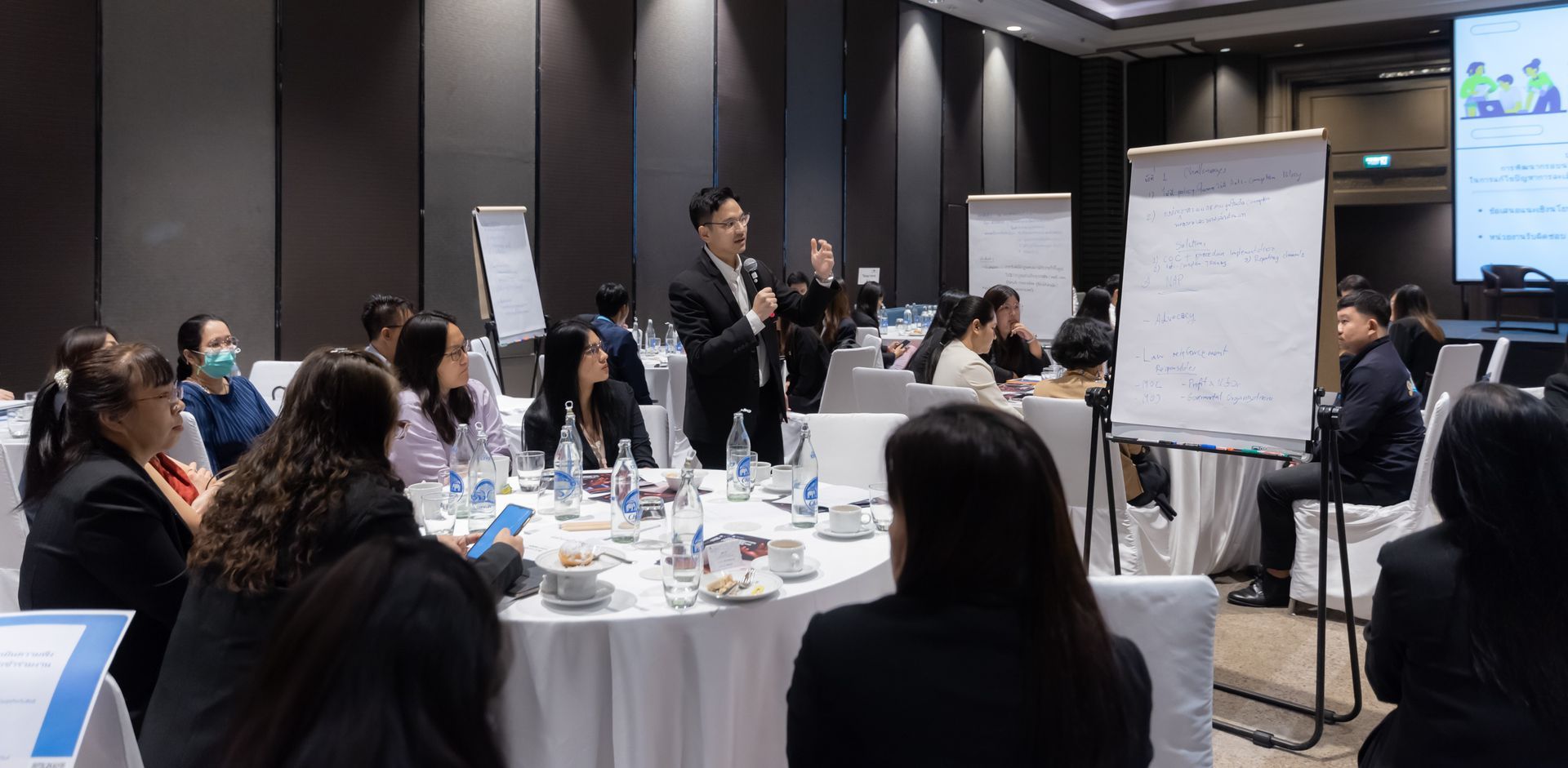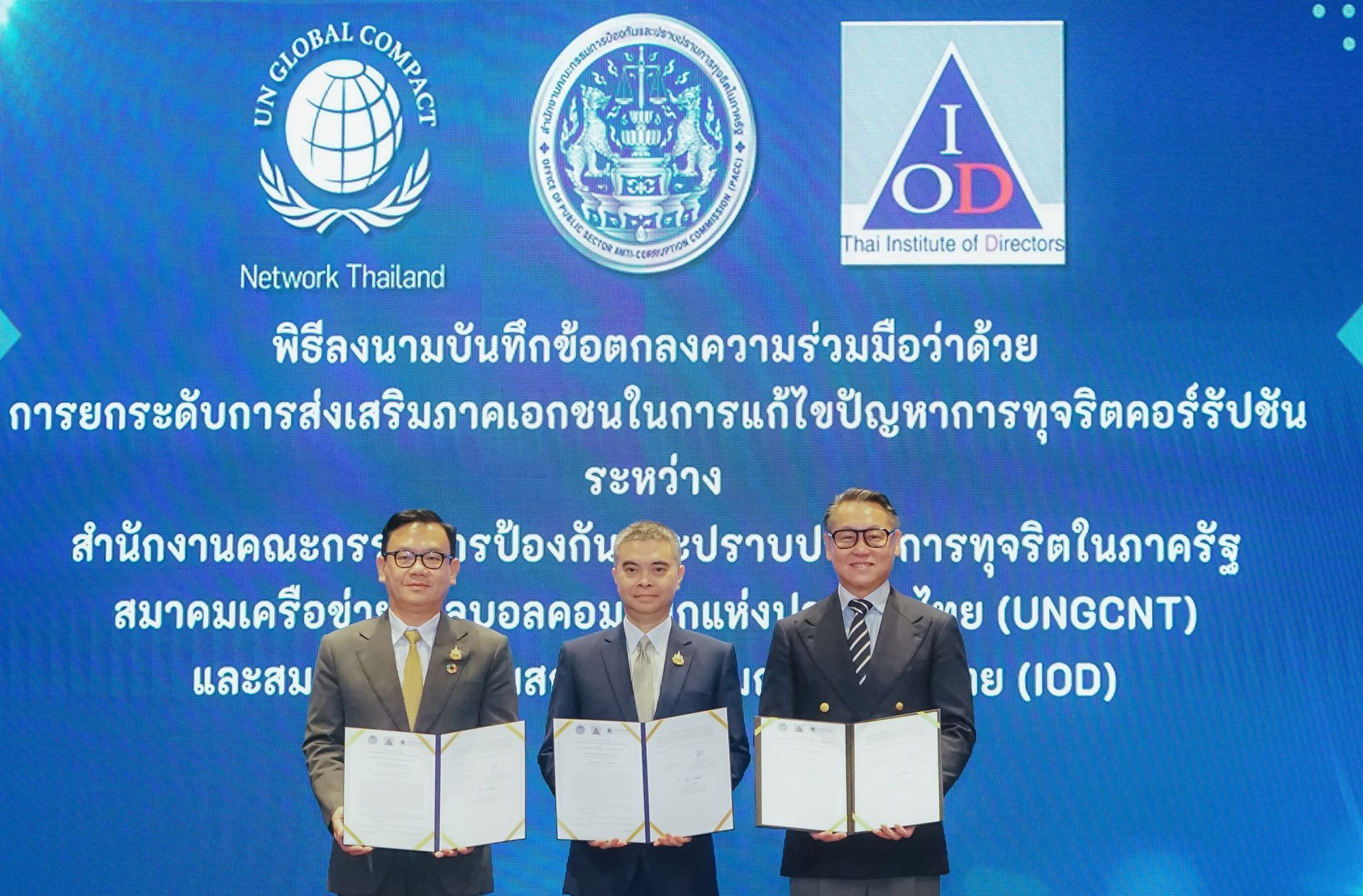Uniting Thai Businesses for Integrity: Turning a Taboo into Collective Action
In Thailand, corruption has long been a subject many would rather not mention, especially in business. For years, the idea of openly discussing bribery or undue influence in public-private dealings felt risky, even dangerous. But through the Anti-Corruption Collective Action (ACCA) project, the Global Compact Network Thailand helped shift that dynamic.
Backed by the Siemens Integrity Initiative, Network Thailand provided a trusted platform where the private sector could come together, share experiences and begin to speak with a unified voice. Rather than leading the change alone, the Network supported Thai companies in expressing their challenges, commitments and expectations — ensuring their voices were finally heard in national discussions on integrity and reform.
To open the conversation, Network Thailand reframed anti-corruption not just as a legal obligation, but as part of a broader commitment to Environmental, Social, and Governance (ESG) values, ethical leadership and sustainable business growth. This new framing resonated with companies and helped shift the tone from fear to possibility.
“In a group with the right people and the right tone, we can be honest about what’s difficult. That’s where change starts.” — Private sector company in Thailand
Network Thailand used creative and respectful methods — like Chatham House Rules and confidential interviews — to build trust. Through this careful approach, over 50 companies began participating in regular working group sessions. What once felt like a taboo topic is now discussed openly through peer learning, training workshops and collaborative problem-solving.
To support companies in making real change, Network Thailand developed and shared practical resources — like the Anti-Corruption Compliance Challenges and Case Studies: Findings from the Thai Private Sector. The publication offers actionable guidance for embedding anti-corruption practices across operations and supply chains, while also navigating the complex risks of engaging with public institutions.
One standout moment was the 8th National Dialogue on Business and Human Rights, where Dr. Netithorn Praditsarn, Secretary-General and Board Member, Global Compact Network Thailand, underscored the need for genuine collaboration and measurable goals. He called for policy reforms to simplify and safeguard recruitment processes, stronger ethical standards for agencies, the use of technology to enhance transparency and greater corporate disclosure aligned with international human rights and anti-corruption standards.

“Anti-corruption is often treated as compliance, but when framed as part of ESG and governance, it becomes more actionable and meaningful.”— Strategy consulting firm
Another turning point came when Network Thailand helped broker a formal partnership between the private sector, the Public Sector Anti-Corruption Commission (PACC) and the Thai Institute of Directors (IOD), resulting in the official launch of a official working group in July 2024. This marked the first time that, through the PACC, companies were formally included in a structured and ongoing mechanism for dialogue with government on national anti-corruption policy — an achievement few thought possible at the start of the initiative — and provided a structured, ongoing mechanism for dialogue and collaboration on integrity issues.

“Government often expects the private sector to ‘listen and learn’ — but we want to shape the agenda too.”— Thai company
By the end of the project, participating companies were not only more aware of anti-corruption, they were also more active. They had strengthened their internal compliance systems, expanded expectations across their supply chains and actively engaged in public-private dialogue on anti-corruption.
Participants reported that the initiative sparked tangible internal change. It helped align departments around a shared commitment to compliance and ethical values, while positioning anti-corruption as a core element of their broader ESG strategies. Companies especially valued the peer learning environment, which encouraged open exchange and benchmarking of practices. Just as importantly, they translated workshop insights into practical improvements — particularly in risk assessment and supply chain integrity.
These efforts didn’t stop at the organizational level. Participants also contributed to a broader shift in business norms across the country.
The ACCA initiative proved that when companies are given safe spaces, practical tools and meaningful partnerships, even the most complex governance challenges can be addressed — collectively. A new standard for integrity is emerging in Thailand: one rooted not in obligation, but in ownership.

